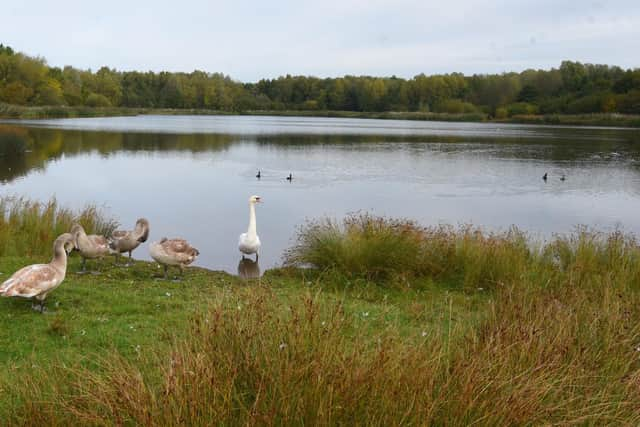Politicians given five priorities to help nature recover in Wigan after devastating declines
and live on Freeview channel 276
In the State of Nature 2023 report, it highlighted that species in the UK has declined by 19 per cent since records began in 1970, with birds in particular declining 43 per cent.
As a result one in six species are now at risk of being lost from Great Britain due to most habitats being in poor condition. Thankfully restoration projects have a number of clear benefits for nature, people and adapting to climate change.
Advertisement
Hide AdAdvertisement
Hide AdConcerns about nature loss, climate change and degraded wild places is a significant voting issue, causing The Wildlife Trust to commit to an ambitious programme of policies supporting nature’s recovery.


Ahead of the next general election, the charity has identified five key areas that politicians should focus on. This includes 30 per cent of land and sea to be protected and restored by 2030 along with damaging fishing practices such as bottom trawling to be banned. The government must also sufficiently fund agencies to do their job and half the nutrient pollution our waterways caused by farming and sewage.
Farmers must also be supported and incentivised to help wildlife recover by creating more space for nature, significantly reducing pollution and halving the harm caused by pesticides. The budget for farming should also increase to £4.4bn a year.
Dr Tom Burditt, chief executive of the Lancashire Wildlife Trust said: “We are in both a climate crisis and a nature crisis and the two are linked. It’s not just something that you see on TV, we are finding plants and animals vanishing from our moorlands, woodlands and rivers.
Advertisement
Hide AdAdvertisement
Hide Ad“Here at your local Wildlife Trust we are proud to have a focus on practical positive action for nature that we can all be taking together, but we also desperately need government policy to be supporting us: leading us through its policies, laws, schemes and financial investments to be doing the right things to ensure that we genuinely leave the natural world in a better state for our children.”
More than a third of the population – 9.5 million households in England are unable to access green places near their homes, The Wildlife Trust has called on the government to support the creation of more green spaces within neighbourhoods and enable all children to access outdoor learning opportunities.
Lastly, the next UK Government must integrate climate adaptation strategies across all departments, create a nature recovery network to help wildlife adapt to change, protect blue carbon stores from damage, and invest in energy efficiency.
Craig Bennett, chief executive of The Wildlife Trusts, said: “The State of Nature report is a stark reminder that politicians must not let nature drop down the agenda – there is far too much at stake. We desperately need better policies that fund nature-friendly farming properly, end the poisoning of lakes and rivers, and create larger wild and more natural areas – including in towns and cities.
